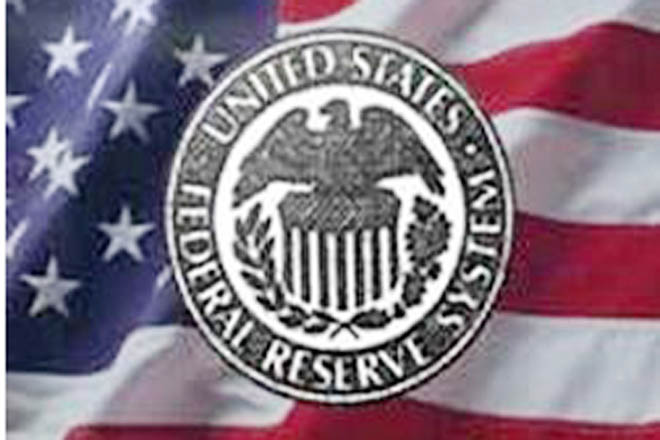The Federal Reserve Board predicted Tuesday that the US economy would remain weak enough for the next two years to require central-bank interest rates at or near current record lows, DPA reported.
The board said it "anticipates that economic conditions ... are likely to warrant exceptionally low levels for the federal funds rate at least through mid-2013."
The Fed made the widely anticipated announcement that the benchmark federal funds rate would remain at zero to 0.25 per cent, which has been in place since December 2008, during the global financial crisis, when the US was suffering its worst contraction in 75 years.
The board observed signs of "a deterioration in overall labour market conditions in recent months," flat household spending, weak investment in commercial construction and a housing sector that "remains depressed."
"Downside risks to the economic outlook have increased," the Fed said.
Three of the board's 10 voting members dissented from the statement, preferring to keep the Fed's previous language, anticipating exceptionally low interest rates "for an extended period," instead of the unprecedented step of specifying mid-2013.
Hiring picked up modestly in July, with unemployment declining from 9.2 to 9.1 per cent after an uptick in the spring. The Fed said that the the unemployment rate "will decline only gradually."
The Fed's statement made no mention of last week's unprecedented downgrade of US government debt by rating agency Standard & Poor's. Two other leading Wall Street agencies left their top-notch US bond ratings in place after Congress passed a measure to cut government spending by more than 2 trillion dollars over the next 10 years.
Questioning Washington's ability to reach consensus to bring the federal deficit under control, S&P's move set off an avalanche of blame between the political parties and sparked massive global stock selloffs, including losses of more than 5 per cent in major Wall Street indices Monday.
Coupled with the eurozone debt crisis and growing worries about the global economy, demand for US Treasuries caused bond yields to decline despite the downgrade.
The Fed observed slower inflation due to declining energy costs and other commodity prices. "Longer-term inflation expectations have remained stable," the Fed said.






